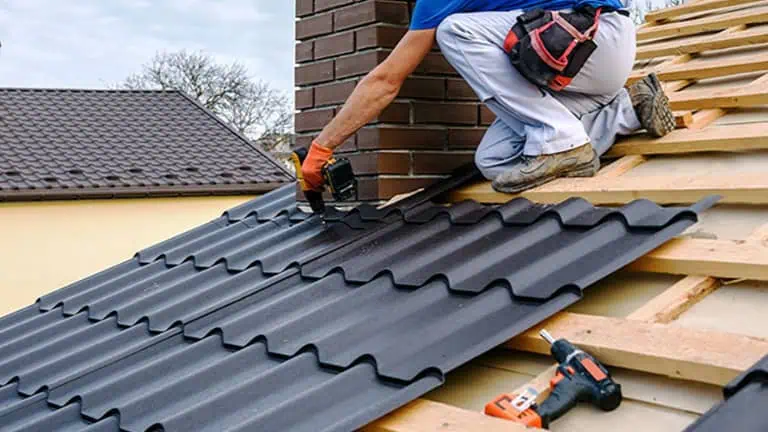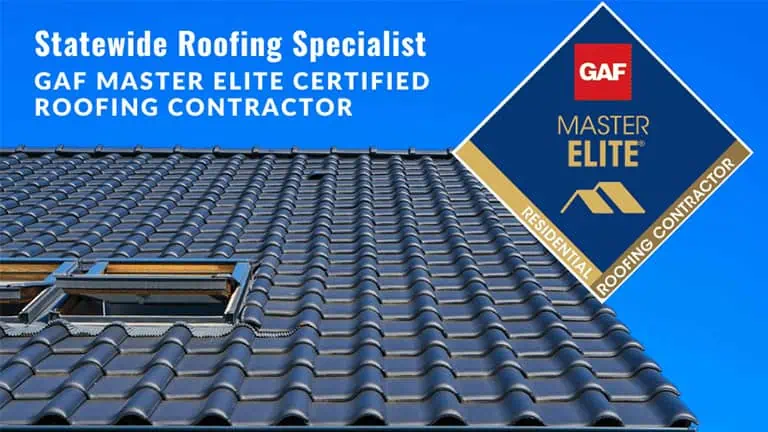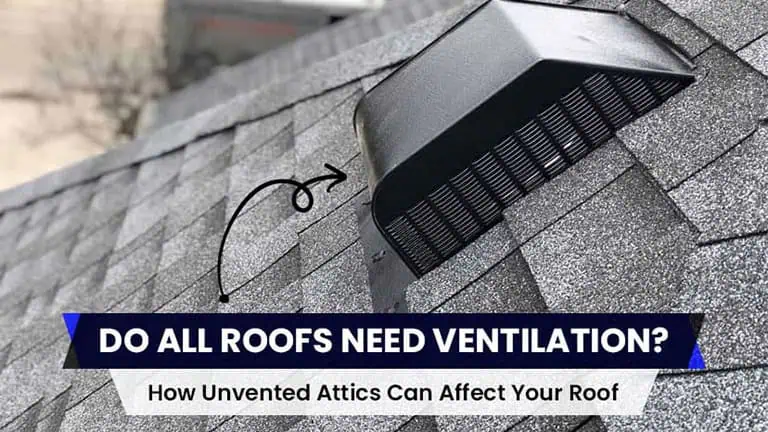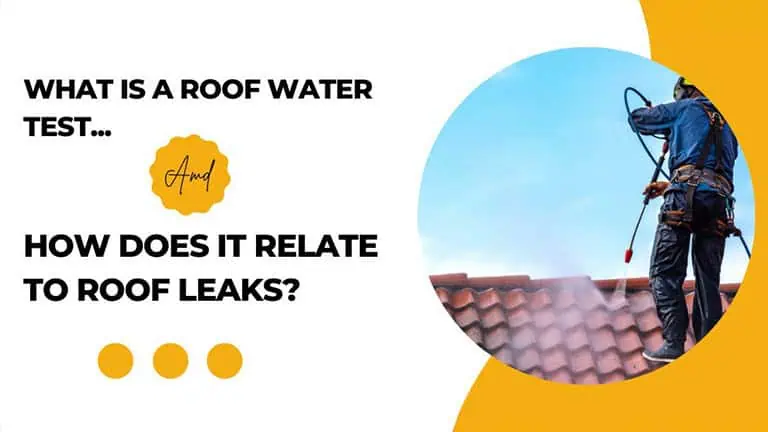
Metal roofs have become homeowners’ favorite choice in the US — and for the right reasons. Once you have chosen metal roofing over others, the rest is to know about the underlayment. In this article, we’ll discuss the metal roofing installation and the type of underlayment that you should use.
What is a Roof underlayment?
Underlayment is a layer of material that’s installed over a roof’s existing asphalt shingles. It provides an extra layer of protection for your roof, and it also helps to seal out water, wind and other elements that can damage your roof.
When it comes to metal roofs, underlayment is often used to protect the roofing panels from rust and corrosion. It can also help to make it easier for you to clean your roof properly so that it lasts longer.
Types of Underlayment for Metal Roofs
A good underlayment should be durable and long-lasting. It should also be able to hold up to the weight of your roofing material and not wear out quickly. There are several types of underlayment available today, including:
Carpet Underlayment
This type of underlayment is often used on homes because it’s inexpensive and easy to install. It’s also made from recycled carpet fibers which makes it low-cost and environmentally friendly.
Foam Underlayment
Foam underlayment is made from polyurethane foam which gives them their cushiony feel when installed on your roofing system. They’re thicker than carpet underlayment which makes them more durable over time but they’re more expensive than regular asphalt-based products.
Asphalt Underlayment
Asphalt-based underlayers are the most common type found on residential roofs today due to their versatility in terms of coverage area, durability, and cost-effectiveness
Choosing the right underlayment for the Metal Roofing
The most common type of underlayment used in metal roofs is asphalt shingles or tiles that are designed specifically for this purpose. They’re also much cheaper than traditional shingles because they don’t have any fancy designs or colors on them, just a flat surface that’s easy to install with screws or nails.
If you’re looking for durability, and weather-resistant features in a roof, then choose metal right away. The metal roofs have incredible longevity and require minimal maintenance. Plus, it’s best for both residential and commercial projects.
Don’t worry about the pitter-patter sounds that you may hear during bad weather. Those days are long gone; today modern metal roofs are appealing and sound-absorbing features.
What are the benefits of Metal Roofing?
Good question. Before finalizing metal roofing (or any roof type per se), learn about its features, pros, and cons. As for metal roofs, here are some of the most admired, persuasive advantages of metal roofing:
Advantages:
- Metal roofs are very durable and long-lasting. They can last up to 60-80 years, which is much longer than other materials used in roofing.
- Metal roofs are also resistant to fire and water damage, which makes them ideal for homes in high-traffic areas.
- Metal roofs have superior insulation qualities.
- Metal roofs are very eco-friendly. Metal roofing is made from recycled materials and helps reduce carbon emissions from fossil fuels by using recycled steel in its construction. This feature also maintains the temperature of the roof and extends its lifespan.
- Metal roofing is a good alternative to wood shingles and asphalt shingles as it does not peel, warp, or crack.
Disadvantages:
Metal roofs are heavy and require more labor to install than other materials used in roofing. The weight can cause problems when it comes to load-bearing walls or decks beneath the metal panels, so it’s important to make sure these elements are structurally sound before installing the metal panels over them.
With all these benefits and features, you must have one question, does a metal roof need an underlayment? Let’s find out.
Metal Roofing and Underlayment
Wondering about whether your metal roof needs an underlayment or not is a common worry amongst homeowners. Metal roofs are becoming increasingly popular in the United States. They are more durable and energy efficient than other roofing materials. However, there is still a lot of confusion about whether or not an underlayment is needed with metal roofs.
Many factors go into determining if an underlayment is needed with metal roofs, such as the slope of the roof, the climate, and what type of metal material it is made out of. A metal roof may not need an underlayment if it has a steep slope or if it’s made out of copper or zinc-coated steel. It may need one if it’s made out of aluminum or lead-coated steel.
The decision ultimately comes down to what type of material you have on your roof.
The best way to answer this question is by understanding the type of metal roofing. There are three types of metal roofing: corrugated, standing seam, and ribbed. Corrugated metal roofs don’t require an underlayment. Standing seam and ribbed metal roofs do.
A metal roof does not need an underlayment because a metal roof has natural insulation and does not allow heat to escape. So, it does not need underlayment for protection against heat loss. Again, the need for underlayment for metal roofing depends on the type of roof you have. If you want to prolong the longevity of your metal roof, then installing an underlayment could be the best decision you’d make.
That being said, the only question that remains to answer is:
What is the best type of underlayment for metal roofing?
Before making up your mind, go through the features, benefits, drawbacks, and pricing of all the metal roofing types. For instance, standing seam metal roofs are more durable and weather resistant than other types. Plus, it offers exceptional safety for your roof system.
As for the underlayment, there are many types of underlayment, but the most common types are asphalt, roofing felt and plastic sheeting.
Plastic sheeting is the cheapest option, but it is only good for a short-term solution. Roofing felt has a higher price but is more durable and can protect against moisture. Asphalt has the highest price, but it also provides the best protection against water damage.
There are several types of underlayment available today, some of which are more popular than others. Let’s take a look at some of them:
Felt Underlayment
Felt underlayment is a layer of felt that is placed between the flooring and the subfloor to provide insulation. Felt underlayment is made from wool, acrylic, or polyester fibers. They are one of the most common types of underlayment and can be purchased at any hardware or home improvement store.
The felt underlayment provides insulation by trapping air and distributing it evenly on the roof. This helps with soundproofing, moisture protection, and overall comfort in your home.
Asphalt Felt
Quite similar to the Asphalt-Saturated Felt, Asphalt felt is a material used to wrap and seal asphalt shingles. It is made of fine-grain asphalt in one-inch rolls, which are then cut and packed into convenient lengths. Asphalt felt resists water penetration and resists movement under the weight of heavy snow loads, but it may be damaged by heavy rain or melting snow.
Tar Paper
Tar paper is a form of asphalt shingle that has been impregnated with tar, making it more durable than asphalt felt. Tar paper comes in rolls with varying lengths and widths, depending on the size you need to cover your roof. The longest rolls are 24 inches wide by 6 feet long; the shortest rolls are 12 inches wide by 3 feet long.
Self-Adhering Membrane
The self-adhering membrane is a material that sticks to itself without any adhesive or glue. It comes in rolls with varying thicknesses and is usually used as a base for other materials such as slate or metal sheeting.
Synthetic Sheet or Felt
Synthetic sheet refers to any sheet material made out of synthetic fibers such as polypropylene (PP), polyester (PET), polyethylene terephthalate (PET), or polyvinyl chloride (PVC). These sheets are usually of very high quality and have good resistance against abrasion. Synthetic sheeting is made up of synthetic materials designed to last for years without degrading or losing strength over time.
Still, find it difficult to choose? There’s one more option.
Call Statewide Roofing Experts and let us worry about underlayment and metal roofs. We provide top-notch metal roofing services at market competitive rates. We don’t want to rip you off with amateur work. We are a certified roofing company in North Carolina with experienced roofers on board.
From inspection to installation, repair, replacement, and everything in between, we’ve got your roof covered. Call us today and get a free quotation.



